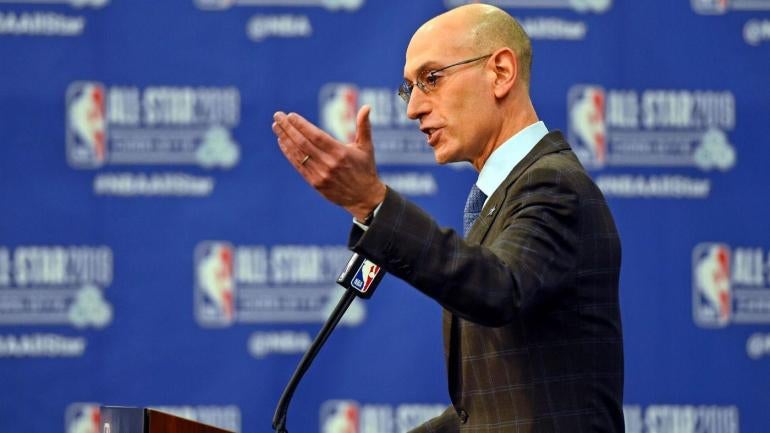
The NBA is sorely in need of a cash infusion. Billions of dollars in revenue have been lost, and with no clear point at which fans will safely be able to return to arenas, even more profits are expected to go down the drain. A possible solution that has been broached is expansion. If the league chose to add two teams, it could sell them to the highest bidder for cash that would offer sorely needed relief to its 30 existing teams right now.
While the league has not committed to that path yet, it has explored the idea with a reportedly exorbitant price tag. According to ESPN's Brian Windhorst, the NBA has floated an expansion fee of $2.5 billion apiece for two new teams, with multiple offers expected from Las Vegas and Seattle-based groups.
That $2.5 billion figure would represent the highest sale price for a professional sports team in North American history. Teams in both New York (the Brooklyn Nets at $2.35 billion) and Los Angeles (the Clippers at $2 billion) have sold for less in the past decade. Seattle and Vegas are both promising markets but come with a far lower ceiling than those cities.
However, historically speaking, expansion fees tend to be inflated beyond typical sales prices. The last expansion team, the then-Charlotte Bobcats, paid a $300 million expansion fee for entrance into the league. The Dallas Mavericks fetched only $285 million around that time despite existing in a better market, and the Boston Celtics, one of the league's most desirable franchises, got only 20 percent more at $360 million. There are a variety of reasons for that inflation, but the simplest is a lack of baggage. New teams are not saddled with debt, losing traditions, or even brand identity. That blank slate represents a possibility to the billionaires bidding on it.
Expansion fees are divided evenly among the 30 existing teams, and players do not get a cut. If the league really did generate $5 billion by adding two teams, it would give each current team a $166.7 million infusion of cash to use as it sees fit. The downside is that it would dilute long-term revenue, as national revenue (primarily television rights fees) would have to be split among 32 teams instead of 30. But given the short-term needs created by the coronavirus, that might be a sacrifice the league is willing to make.


















